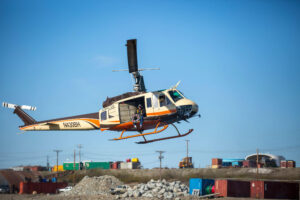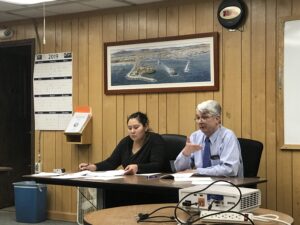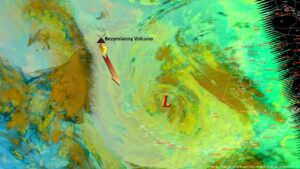Hunting is one of the largest subsistence activities in the region. Fishing, hunting and trapping all require proper licensing. There are many rules and regulations when it comes to hunting in Alaska. When it comes to subsistence hunting, one of them is ‘Field to Freezer.’
Field to Freezer is the process of hunting an animal and harvesting all of the animal. According to the Alaska Department of Fish and Game (ADFG) website, all edible meat must be salvaged from big game animals except brown bears, wolves, wolverines. Any furbearer must be harvested.
A Food Security and Wild Resources in Alaska document from ADFG in 2018 shows a study that roughly 125,000 residents of rural Alaska produced approximately 34.3 million pounds in wild food harvests in 2014.
The Alaska State Wildlife Troopers (AWT) work across the state enforcing all state laws, but focus on boating safety, reduction of illegal harvests in fish and the prevention of waste. The Northern Detachment of AWT covers the majority of Western Alaska. Dylan Brooks works as a wildlife trooper in Bethel. He says in his area one animal is found un-harvested more than others.
I guess in my experience, I would say caribou, and moose. I think that is largely because we have more caribou, moose hunters, than any other kind of hunter out there.
Over the last two weeks several posts gained popularity in local Facebook groups regarding animals that were discarded throughout the Nome and Norton Sound area. Some of the animals appeared untouched in trapping boxes. Comments flooded with offended comments and reminders of traditional Alaska Native hunting traditions. Brooks says when AWT finds a discarded animal, they share it with the village elders.
If the animal is still salvageable, if the meat hasn’t spoiled yet, then we try to get it to elders in the nearest community. Some places have a charity list and they’ll call the next person on the charity list. Then that person can come out and salvage it.
Brooks says it’s uncommon to get reports of entire animals being wasted but more common for particular cuts to be harvested. He speaks on the effect this has on local communities.
It doesn’t look good to people that are hunters that do things the right way, you know, they’re very ethical, it doesn’t look good to them.
In the State of Alaska, if one fails to properly harvest an animal the minimum charge is one week in jail and a $2,000 fine. Alaska Department of Fish and Game reminds that one’s wilderness is another’s backyard. To report a wildlife violation, contact ADFG Safeguard at 1-800-478-3377. Hunting laws, regulations and requirements can be found online on the AWT website.
Editors note: article has been edited for clarification regarding subsistence hunting and the correction of brown bears. For information regarding marine bird regulations and other hunting regions https://www.fws.gov/subsistence-springsummer-bird-harvest-2023-alaska
Photo at top: Musk Ox in Nome: updated July 10th





